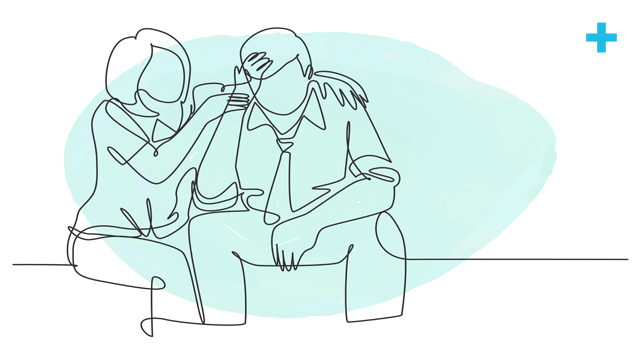In honor of World Mental Health Day, we wanted to highlight the important role of community-based healthcare in supporting members’ mental health.
When it comes to improving health outcomes for high-needs members, it’s crucial to take a holistic approach that addresses their physical and mental health, along with their unmet health-related social needs.
What is Mental Health?
When it comes to understanding mental health, there are three key terms to understand: mental health, mental health problems, and mental health disorder:
- Mental health is the maintenance of successful mental ability, through things such as daily activities, fulfilling relationships, and an ability to cope with change and stress. Coping with everyday worries and other short-term stressors helps people to become more adaptable and resilient, ultimately supporting long-term mental health.
- Mental health problems are significant life events that everyone experiences (i.e. the death of a loved one or divorce) that can cause intense emotions and last for a long time. A person experiencing a mental health problem often needs support from loved ones, community members, or a counselor.
- Mental health disorders (also known as mental illness) occur when there is a disruption in normal brain functioning that requires evidence-based treatment by trained professionals. A smaller portion of the population experiences what would be considered a mental health disorder.
How Community-Based Healthcare Can Support Mental Health: Michelle's Story
Reema’s approach is based on models of community-based healthcare, which means that we provide care by the community for the community.
Our approach is person-centered, with an emphasis on meeting members where they are in order to identify the right message, resource, and support.
Take Michelle’s story, for example: Michelle was 57 when she initially connected with her Community Guide. She has developed a strong connection with her Guide, and in addition to sharing about her ongoing chronic pain issues, Michelle has shared about the complex relationship she has with her family that leaves her feeling lonely and depressed.
In addition to offering support with picking up prescriptions and transportation, Michelle’s Guide provided emotional support and helped with key household tasks that she found stressful, including helping her cook and prepare holiday meals. This consistent engagement and support helped Michelle to navigate ongoing stressors in her life, and also helped her develop resilience as she faced challenges related to seeking a new job.
By establishing a connection built on empathy and deep understanding, Michelle’s Guide was able to offer meaningful support that responded to her physical and mental health needs. Rather than casting a wide net with a surface-level approach, connecting with members individually ensures that the needs that impact their health outcomes are being met and offers a scalable framework for working with a wide range of members.
For more insights drawn from members’ stories, read Reema’s newest eBook Navigating Barriers: SDoH Insights From Real Member Experiences.



